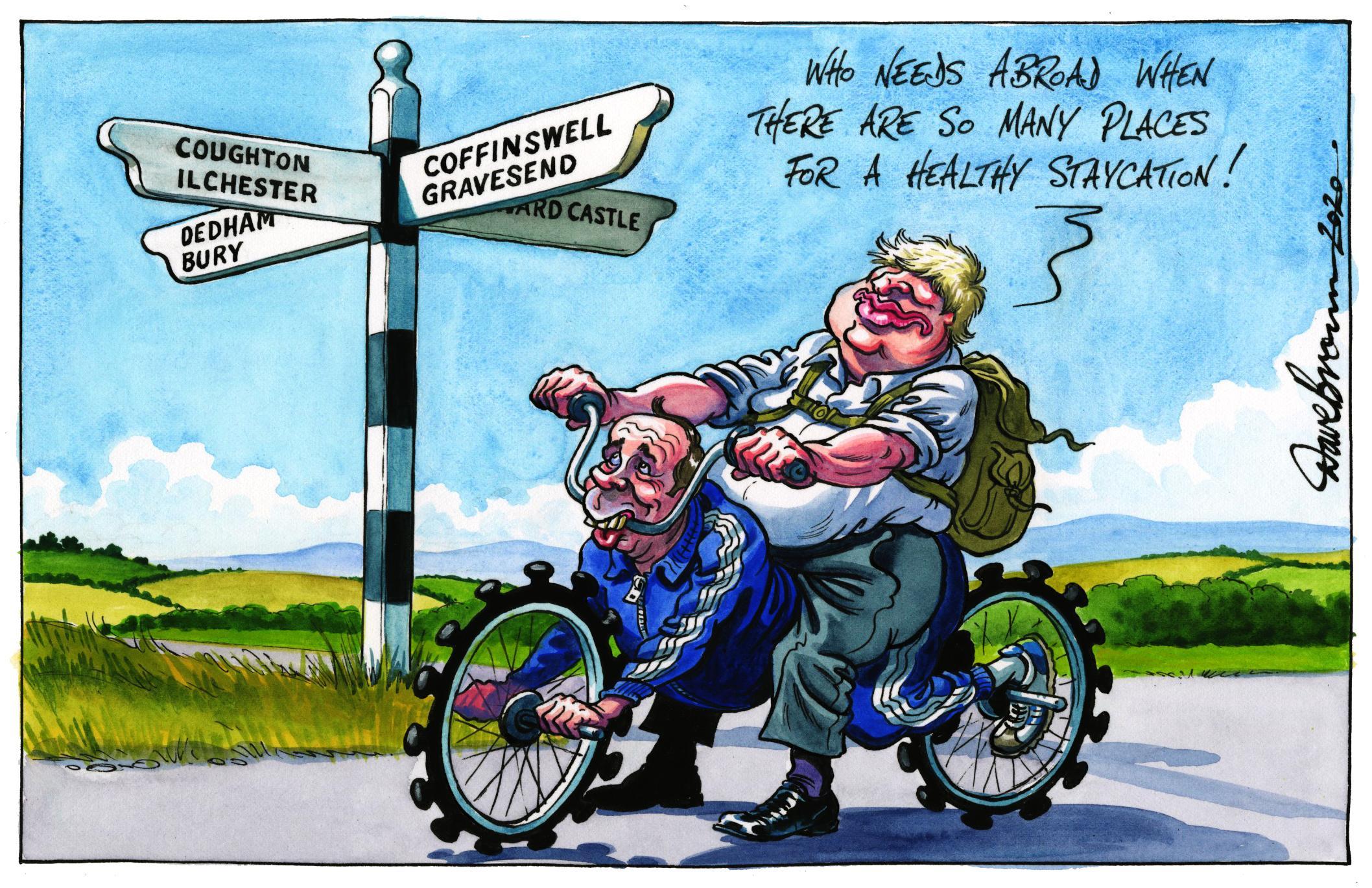Will the Spain quarantine row affect Brexit talks?
Sean O'Grady considers whether long-held tensions over Gibraltar might be reignited


It is certainly rare for the head of one government to directly criticise the policies of another, friendly state. Diplomatically, it is not really the done thing, even in the age of Twitter and Trump. For Pedro Sanchez, prime minister of Spain, to say that the new British travel restrictions on Spain are “unjust” and an “error” shows how serious he takes the matter.
Spain no longer relies as heavily on tourism as it once did (the Spanish now make twice as many vehicles as the British, for example), but the sector is still crucial for some Spanish regions. Covid-19 has inflicted considerable damage on the Spanish people and the economy, just as they were emerging from a number of financial crises. The British move adds to their problems.
The obvious place for the Spanish to try to exercise leverage is via the Brexit talks. It would not, though, materialise in any crude manner. The talks are in any case headed for a no-deal outcome and have already, arguably failed – so a Spanish attempt to derail them seems pointless, even playing into the hands of some in London who seek a WTO terms exit from the EU. Spain was given a special veto on Brexit as it affects Gibraltar, the British territory long claimed by Spain, under the withdrawal treaty and the Gibraltar protocol, and, like the other 26 nations (plus regional parliaments) will have a veto on any UK-EU trade deal.
Yet on Gibraltar, so far both sides have shown exemplary patience and pragmatism in trying to resolve practical issues such as taxation, policing, smuggling, the movement of workers and the like. Under the latest proposal, Spain and Gibraltar could form a common travel area, like Britain and Ireland, and Gibraltar, though technically outside the passport-free Schengen area, could join that too (as Switzerland has).
Sensitive as it is, and a matter of intense national pride, neither the British nor the Spanish appear to be in the mood for a scrap over the legitimacy of the Treaty of Utrecht (1713) by which Spain ceded the Rock to the UK. The UK-EU free trade treaty is much more the focus. Arancha Gonzalez Laya, Spain’s foreign minister, prefers to talk about “an area of shared prosperity” and a “21st century version of sovereignty”. London and Madrid will also preserve their tacit non-aggression pact over separatism in Catalonia and Scotland.
Apart from the Gibraltar question, Spain has the same status as the other 26 nations behind Michel Barnier’s negotiating team, and he is being allowed to get on with his job. Spain’s need for post-Covid financial help from the EU caused many difficulties within the bloc and might make other states less sympathetic to any posturing over Gibraltar or the British.
There are issues of much greater importance that are at stake for Spain in the Brexit talks, but they tend to be similar to those facing other EU member states. Fishing rights in British waters, for example, are also a concern for France, Denmark and the Netherlands. Access to the British market for Spanish manufactures and produce is as much a challenge as it is for, say, Italian businesses – as is continuing British tourism.
The rights of British citizens, permanent or part-time residents, in Spain have something of a higher profile. This is because there are so many of them (probably more than 300,000), and because Spain does not allow for dual citizenship – they may have to make a choice. For existing residents, most rights are safeguarded in the withdrawal agreement. For those off to Spain after 31 December 2020, however, things are far less clear. How will British expats access local health care in future, for example? Will they be taxed identically to their Spanish neighbours? Will they be able to work?
The worst-case scenario would be a combination of a no-deal Brexit and an unravelling of the already agreed and ratified UK-EU withdrawal agreement. It is an international treaty, the only part of the new British-European/Spanish relationship actually settled, and it is almost unthinkable it would collapse, but the disputes about the Northern Ireland-Great Britain economic border could yet become more bitter. The harder the Brexit the harder this internal UK border becomes – and the more likely the Northern Ireland protocol and the rest of the UK-EU withdrawal agreement will fall down. When that goes so does the Gibraltar protocol, and, possibly, expat residents’ rights, and what little progress that there has been will be lost. It would be bad for Spain, for Britain, for Gibraltar and for everyone else. Like coronavirus, Brexit will be bugging us all for years.
Join our commenting forum
Join thought-provoking conversations, follow other Independent readers and see their replies
Comments